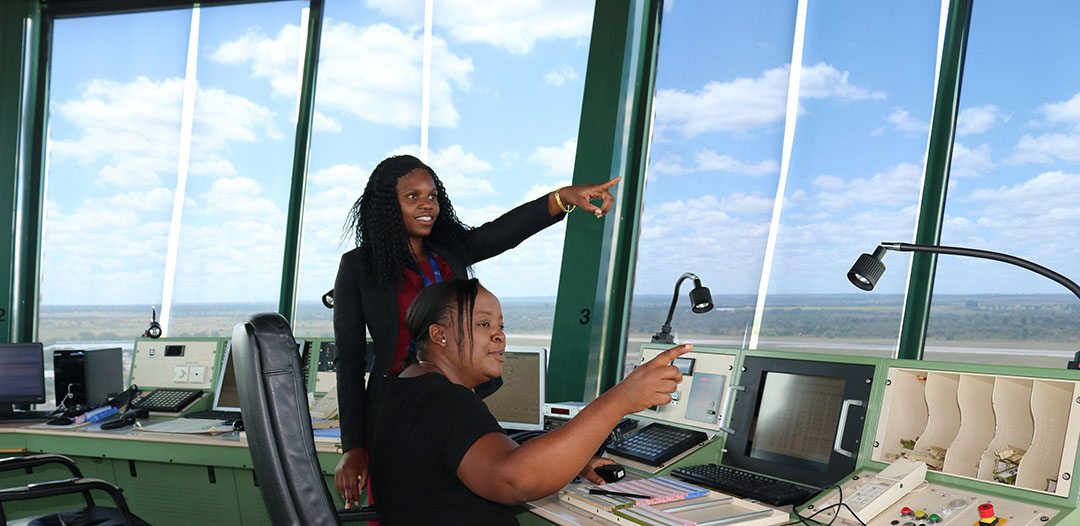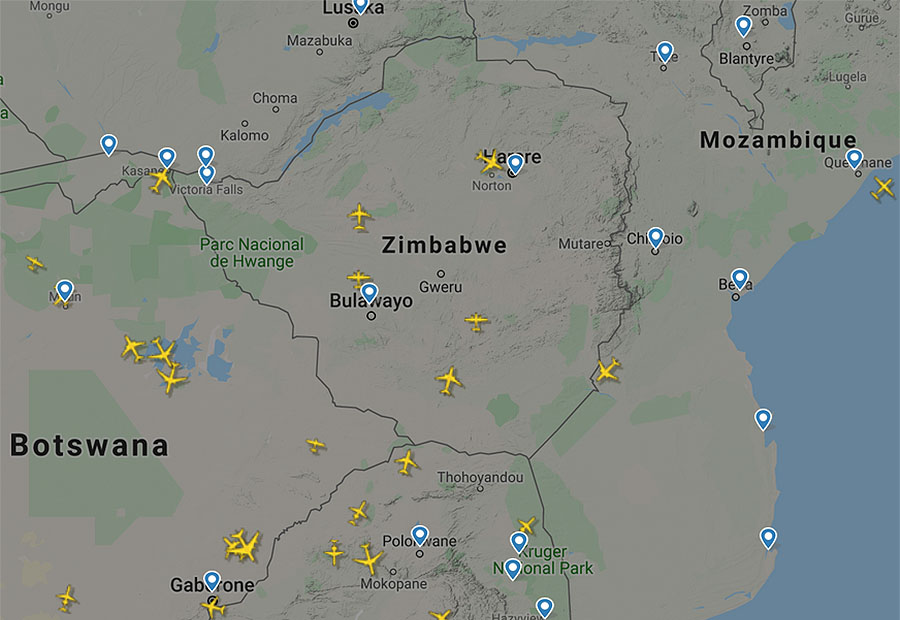HARARE – A plane collision in Zimbabwean airspace is a frightening possibility because of broken down air control systems, a union for air traffic controllers has told the government.
Air traffic controllers sometimes use their personal mobile phones to communicate with pilots taking off from Zimbabwean airports – placing passengers and crews in danger, according to the Air Traffic Controllers Association of Zimbabwe (ATCAZ).
The union says air traffic controllers are poorly paid and most are “struggling to make ends meet” which has forced them to work more than the internationally-recommended hours, “disregarding mandatory rest periods.”
On Tuesday, at least three flights were disrupted after air traffic controllers who had worked the night shift refused to extend their hours under the gaze of a team from the United Nations’ aviation agency, the International Civil Aviation Organisation (ICAO), which is currently in Zimbabwe assessing safety standards and compliance.
The Civil Aviation Authority of Zimbabwe (CAAZ), after initially denying there were problems, later released a statement confirming that it “experienced an operational problem that resulted in our morning shift failing to arrive on time.”
“This resulted in delays in dispatching three aircraft departing from three airports,” CAAZ said.
The incident provoked a leakage of letters written to Transport Minister Joel Matiza by the ATCAZ, in which they warned that obsolete air traffic control systems now posed an imminent danger to the flying public.
The radar system at the Robert Gabriel Mugabe International Airport malfunctioned nearly five years ago, and the ATCAZ says it highlighted concerns over the “continued deterioration in air navigation communication performance” in September 2017 and May 2019 which the government ignored.
“There have been several cases in which there was total loss of Air Traffic Services, air-to-ground communications in the upper airspace,” ATCAZ said in an October 29 letter.
There had been a complete communication blackout on four days this year – September 25, September 29, October 16 and October 18.
Describing the situation as “chaotic and dangerous”, ATCAZ warned that air traffic controllers were “incapacitated” to stop a mid-air collision from taking place.
“ATCAZ has on several occasions called for the urgent replacement of the obsolete communication system. Air-to-ground communication is a fundamental and mandatory requirement for a functional Air Traffic Services unit without which air traffic controllers are incapacitated to actively prevent collisions,” the union said.

Zimbabwe’s main airport, said ATCAZ in their damning letter, has no reliable two-way radio communication system “which is a requirement even in the least restrictive of airspace classes.”
It added: “By failing to deliver on a key mandate, CAAZ continues to expose airspace users to an unacceptable hazard with the following implications: risk of collisions between aircraft; failure to properly identify aircraft and assist in emergency; delays and increased operating costs for airlines; loss of revenue as airlines avoid airspace; possible blacklisting of the country by ICAO due to failure to meet a basic mandatory requirement and portrayal of the country in a bad light undermining government efforts to boost the country’s image.”
The RGM International Airport is currently undergoing a Chinese-funded US$150 million upgrade to modernise it and boost its annual passenger handling capacity to six million from the current 2.5 million
The government says as part of that upgrade, the airport will be getting an advanced air traffic control system – but that will not be ready for another two years.
















